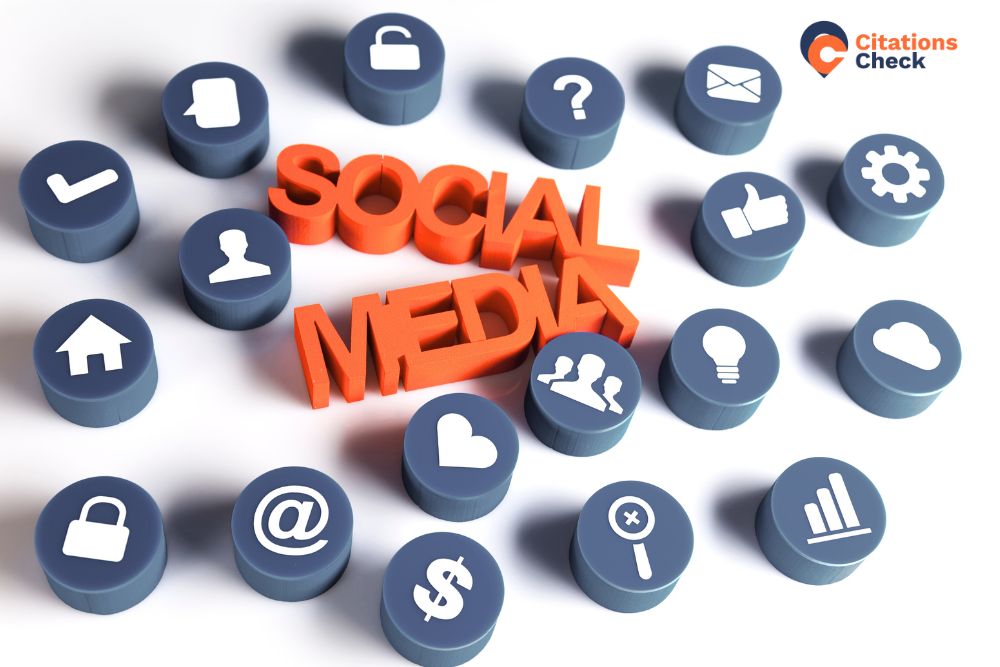
In today’s competitive digital world, businesses can’t afford to treat social media and SEO as separate strategies. Platforms like Facebook, Instagram, LinkedIn, and X (Twitter) don’t just connect you with customers—they also influence your search visibility.
While Google has said social media isn’t a direct ranking factor, the truth is more nuanced. Social media activity, engagement, and mentions—known as social signals—play a crucial role in how your business is perceived, indexed, and ranked locally.
At Citations Check, we specialize in helping local businesses improve their local citations, SEO visibility, and social presence. In this article, you’ll learn how social signals can amplify your local SEO strategy and help you rank higher on Google’s Map Pack and organic results.
Social signals are measurable interactions on social media platforms that indicate how people engage with your brand online.
These include:
Each of these signals tells search engines something important: your brand is active, relevant, and trusted by real people.
Even if these signals don’t directly alter your ranking score, they correlate strongly with top-ranking pages in local search results. The more your content is shared and engaged with, the higher your visibility—both on social platforms and in local search listings.
Google doesn’t crawl your Facebook likes or Instagram followers the same way it does web pages—but it uses social signals as indirect ranking cues.
Here’s how it works:
When your business gets attention on social media—through shares, mentions, and reviews—it boosts brand awareness and credibility.
Google’s algorithms are designed to reward trusted brands, and strong social engagement is one way to validate your business legitimacy online.
Social posts often include links to your website. These links may be “nofollow,” but they still help search engines discover new content faster.
For example, when you share a new blog post or service page on social media, Googlebot may index it sooner due to the visibility it gains.
Search engines cross-reference your business details—like your name, address, and phone number (NAP)—across different platforms.
Having consistent NAP information on your social profiles, local citations, and website helps Google confirm your business legitimacy, boosting your local SEO authority.
Search engines use user behavior signals—such as click-through rates and time spent on your website—to gauge content quality.
When social media brings engaged visitors to your site, it improves these behavioral metrics, indirectly strengthening your SEO performance.
Social media doesn’t just boost awareness—it directly supports your local SEO ecosystem by complementing your citation-building strategy.
Let’s break down the connection between social media activity, citations, and local search rankings.
When you engage actively on social platforms—posting local content, sharing updates, and responding to customers—you increase your visibility among local audiences.
This engagement creates more branded searches like “Your Business Name near me,” signaling Google that your brand is relevant locally.
Your social profiles (Facebook, LinkedIn, Instagram, etc.) act as authoritative business citations in themselves.
They contain essential NAP data that Google references when evaluating your business’s local authority.
By keeping this information accurate and consistent across all platforms, you’re essentially improving your local citation SEO profile.
Platforms like Facebook and Google My Business allow users to leave reviews. Positive, consistent feedback helps both your online reputation and ranking position in Google’s Local Pack.
Encouraging happy customers to share reviews on social and citation sites can help you build social proof and stronger local signals.
When your content is shared frequently, bloggers, influencers, or local media outlets are more likely to link back to your site.
These backlinks directly improve your Domain Authority (DA) and overall SEO strength—especially valuable when combined with high-quality citation building.
A strong social presence encourages users to click on your website links, boosting CTR (click-through rate)—another metric Google uses to gauge page relevance.
The more people engage with your content, the better your chances of appearing in local search results and Google Maps rankings.
Building citations is one part of local SEO—but integrating social media management into that process can magnify results dramatically.
Here’s how to make social media and citations work hand-in-hand.
Ensure your business name, address, and phone number match exactly across:
Consistency builds trust with search engines and eliminates confusion.
Each social media platform offers a space for your website link.
Use this strategically to direct followers to:
This creates a network of interconnected signals pointing to your business, helping search engines verify authenticity.
Sharing localized posts, customer stories, or event updates tells both users and Google that you’re active in your community.
Examples include:
Localized engagement strengthens your geo-relevance, a core factor in local SEO.
Ask satisfied customers to tag your business or leave reviews on Facebook or Instagram.
Each positive mention adds to your brand authority and improves your citation credibility.
Running location-based ads on Facebook or Instagram can drive traffic to your citation listings or Google Business Profile.
This not only increases visibility but can generate new citations organically as people mention or tag your business online.
Use tools like Google Alerts or Mention to track where your brand appears online.
Responding to comments, reviews, and mentions boosts both engagement and customer trust, signaling that your business is active and responsive.
At Citations Check, we provide comprehensive local SEO and citation management services designed to help your business stand out online.
We ensure your listings are accurate, consistent, and optimized—and now, our social media management services take that even further.
Here’s what we help you achieve:
Together, citations and social signals create a powerful combination that helps you rank higher, attract more customers, and dominate local search results.
Social media is no longer just for branding—it’s a powerful local SEO tool that strengthens your citations, boosts visibility, and builds customer trust.
By maintaining consistent business information, engaging with your local audience, and leveraging social signals effectively, you can dominate your local search market.
If you’re ready to grow your local visibility, improve your citations SEO, and manage your social presence effortlessly,
visit CitationsCheck.com and let our experts handle the rest.